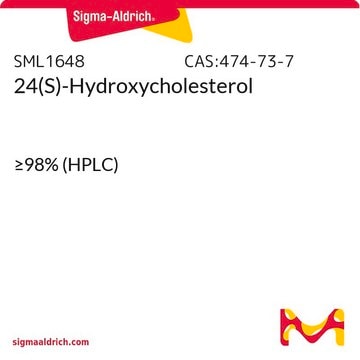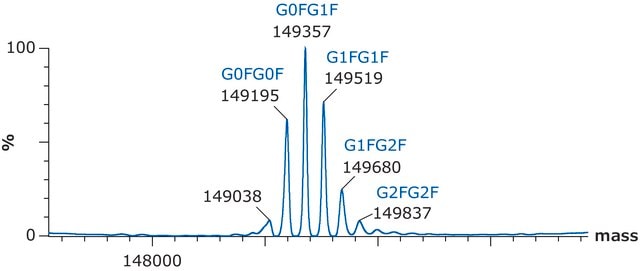PZ0190
Avasimibe
≥98% (HPLC)
Synonym(s):
CI-1011; PD 148515; [[2,4,6-tris(1-methylethyl)phenyl]acetyl]-, 2,6-bis(1-methylethyl)phenyl ester] sulfamic acid
About This Item
Recommended Products
Quality Level
Assay
≥98% (HPLC)
form
powder
color
white to tan
solubility
DMSO: ≥40 mg/mL
relevant disease(s)
Alzheimer′s disease; cardiovascular diseases
storage temp.
room temp
SMILES string
CC(C)c1cc(C(C)C)c(CC(=O)NS(=O)(=O)Oc2c(cccc2C(C)C)C(C)C)c(c1)C(C)C
InChI
1S/C29H43NO4S/c1-17(2)22-14-25(20(7)8)27(26(15-22)21(9)10)16-28(31)30-35(32,33)34-29-23(18(3)4)12-11-13-24(29)19(5)6/h11-15,17-21H,16H2,1-10H3,(H,30,31)
InChI key
PTQXTEKSNBVPQJ-UHFFFAOYSA-N
Application
Biochem/physiol Actions
Legal Information
Storage Class Code
11 - Combustible Solids
WGK
WGK 3
Flash Point(F)
Not applicable
Flash Point(C)
Not applicable
Choose from one of the most recent versions:
Certificates of Analysis (COA)
Don't see the Right Version?
If you require a particular version, you can look up a specific certificate by the Lot or Batch number.
Already Own This Product?
Find documentation for the products that you have recently purchased in the Document Library.
Articles
Discover Bioactive Small Molecules for Lipid Signaling Research
Discover Bioactive Small Molecules for Lipid Signaling Research
Discover Bioactive Small Molecules for Lipid Signaling Research
Discover Bioactive Small Molecules for Lipid Signaling Research
Our team of scientists has experience in all areas of research including Life Science, Material Science, Chemical Synthesis, Chromatography, Analytical and many others.
Contact Technical Service








